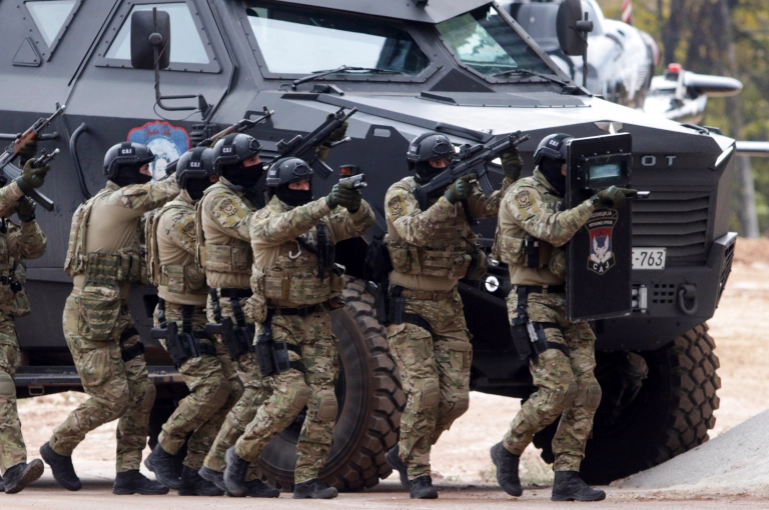
Introduction
AVİM has been consistently drawing attention to the developments in Bosnia and Herzegovina (BiH) that threaten the country's sovereignty and territorial integrity. In this context, in our analysis entitled “Why Should the Role of The Peace Implementation Council and OHR Continue In Bosnia And Herzegovina?”, we asserted the view that the continuation of the powers of the Peace Implementation Council (PIC), including the Bonn Powers, is essential for the preservation of the sovereignty and territorial integrity of Bosnia-Herzegovina in face of the secessionist threats of Milorad Dodik, the Serb member of the Presidency of BiH.[1] In our following analysis titled “Slovenian Document on Dismemberment of Bosnia-Herzegovina Confirms the Necessity of Continuing the PIC-OHR-Bonn Powers,” we explained how a non-paper suggested redrawing the borders in the Balkans ploy and sought to dismember BİH. The non-paper is purported to have been prepared by the EU member Slovenia (currently holding EU presidency) and sent to Charles Michel, President of the European Council.[2] We stated that reckless proposals contained in the non-paper could lead to bloodshed in the Balkans and spill over to whole Europe.
Recent developments reveal that the dangers we have expressed in our analyzes have reached a level that can no longer be swept under the carpet, and that the territorial integrity of BiH is under serious and imminent threat. For instance, The Guardian newspaper reports these developments in an exclusive article by the World Affairs editor entitled "Bosnia is in danger of partition, warns top international official."[3] The exclusive article, with reference to BiH High Representative reflects the view that BiH is in imminent danger of breaking apart, and there is a very real prospect of a return to conflict.
BiH High Representative’s report to the UN Secretary General
In the midst of these serious developments, the new High Representative of BiH, Christian Schmidt, submitted the 60th Report of the High Representative for Implementation of the Peace Agreement on Bosnia and Herzegovina to the UN Secretary General on 5 November 2021.[4] In summary, the report reflects the following views:
- Bosnia and Herzegovina (BiH) faces the greatest existential threat of the postwar period. Persistent, grave challenges to the fundamentals of the General Framework Agreement for Peace (GFAP) by the Republika Srpska (RS) entity authorities, led by the biggest RS party, the Alliance for Independent Social Democrats (SNSD) headed by BiH Presidency member Milorad Dodik, endanger not only the peace and stability of the country and the region and if unanswered by the international community his moves could lead to the undoing of the Agreement itself.
- Mr. Dodik has called for the Republica Sırpska’s (RS) unilateral withdrawal from agreements reached long ago on the transfer of entity competences to the State in the areas of defense, indirect taxes and the High Judicial and Prosecutorial Council (HJPC), and for the entity to reclaim constitutional competences in the fields of the State judiciary, law enforcement and intelligence.
- Mr. Dodik announced the drafting of a new RS Constitution and a rejection of all decisions and laws by High Representatives. This would mean, among others, the withdrawal of the members of the BiH Armed Forces (AFBIH) who reside in the RS, the takeover of AFBIH facilities on RS territory, and the reestablishment of the RS Army ostensibly from personnel withdrawing from the BiH.This would also mean the withdrawal of the entity from the State-level Indirect Taxation Authority (ITA), the HJPC, the State Investigation and Protection Agency (SIPA) and the Intelligence-Security Agency (OSA), and measures to prevent those institutions from operating in RS territory.
- This move is tantamount to secession without proclaiming it (emphasis added). The unilateral withdrawal of either entity from the established State institutions, which is not legally possible under the current constitutional framework, would lead to the collapse of those institutions, and ultimately undermine the State’s ability to function and carry out its constitutional responsibilities. Mr. Dodik revealed his goal as an independent RS within the Dayton no right to secede from BiH. The State institutions were already paralyzed since July, when Mr. Dodik in agreement with the RS opposition parties announced the withdrawal of RS representatives from the decision-making process in the institutions.
- The RS authorities adopted the Law on Non-Applicability of the Decision of the High Representative Enacting the Law on Amendment to the BiH Criminal Code. This Law rejects the High Representative’s 22 July decision and prescribes that State-level legislation shall not be applicable in the RS and obliges the RS authorities not to cooperate with BiH institutions attempting to implement State-level law. This constitutes concrete violations of Annex 4 and Annex 10 of the GFAP.
- Although Mr. Dodik has recently stated his actions are not aimed at inciting conflict, he has also warned that any attempt by State-level judicial institutions or law enforcement agencies to intercede would be met with force, further adding, unprovoked, that if NATO were to intervene the RS would seek assistance from unnamed “friends” who he claims have given assurances of their readiness in this regard.
- As the final interpreter of the General Framework Agreement for Peace (GFAP), High Representative’s considered assessment is that the RS authorities are already in grave violation of the Agreement and are poised to violate it further, potentially causing irreparable damage (emphasis added). If they succeed unchallenged in this undertaking, the RS authorities would establish a new constitutional and legal framework removing the RS from the Dayton architecture, particularly from the constitutional order of BiH, which is synonymous with secession. Ignoring or downplaying this state of affairs could have perilous implications for the region and beyond .
UN Security Council Decision extending operations of multinational stabilization force and maintaining a NATO headquarter in BiH for 12 months
UN Security Council, following the debate of the issue, unanimously adopted resolution 2604 (2021) on 3 November 2021 under Chapter VII of the United Nations Charter. The Resolution authorized the Member States acting through or in cooperation with the European Union to establish a multinational stabilization force, or EUFOR-Althea, and renewed its authorization to maintain a NATO headquarters in the country for 12 months. EUFOR-Althea is mandated to help implement the military aspects of the Peace Agreement.[5]
As per information contained in the UN Meeting Coverage and Press Release, Council members and representatives of concerned States broadly welcomed the resolution but were divided about the absence of references in that text to the role played by the Office of the High Representative in implementing the civilian aspects of GFAP.[6] The representative of the USA expressed concern over Mr. Dodik’s statements indicating an intention to withdraw Republika Srpska “entirely” from the Government, adding that such assertions represent “a dangerous path” for Bosnia and Herzegovina and the wider region. Whereas the Russian Federation representative (he) warned that the worsening political situation in Bosnia and Herzegovina is being compounded by the irresponsible actions of several external forces. He claimed that some Western countries tried to appoint Christian Schmidt as the High Representative in violation of the established practice and insisted that the post remains vacant. He denounced the 30 October report by Mr. Schmidt as an “extremely biased and anti-Serb document aimed at destroying the glimmer of peace and cooperation among people in Bosnia.” He further asserted that demonizing Serbs appears to be the policy of some external parties and called for an equitable discussion on ways to end that “outside trusteeship.”
Bosnia and Herzegovina’s representative said the country is facing its greatest existential threat of the post-war period. Republika Srpska’s move would “turn the clock back 15 years.” Its policy not only obstructing implementation of the Dayton Agreement, but reversing it, in a move tantamount to secession without proclaiming it. Serbia’s delegate (he) stressed that the mechanism for enacting a potential change in the Dayton Agreement requires consent of both entities and three constituent peoples, therefore, any attempt by any other party to impose a solution is unacceptable. He also underlined that Serbia, as a guarantor of the Dayton Agreement, supports the territorial integrity and sovereignty of Bosnia and Herzegovina and rejects decisions not reached by consensus.
The statement of the Croatia’s delegate (he) is attention grabbing. He said that the current electoral framework in BiH allows for “electoral engineering,” thereby depriving Croats in Bosnia and Herzegovina of their right to elect their legitimate representative in the State presidency. “This is unacceptable and has to be changed,” he stressed, adding that Croatia strongly supports legislative changes necessary for the election law to comply with rulings of the European Court of Human Rights and other relevant decisions. As might be expected, this statement of the Croatian delegate was supported by the EU delegation which has only observer status. The Head of the European Union Delegation, speaking in its capacity as observer, expressed regret that Bosnia and Herzegovina’s Constitution remains uncompliant with the European Convention on Human Rights. Calling for an inclusive process of electoral reform through genuine dialogue, in line with European standards, he said all forms of inequality and discrimination should be eliminated from the electoral process.
Conclusion
It is possible to say that the UN Security Council resolution summarized above has an unsubstantial content regarding the protection of BiH's sovereignty and territorial integrity. As it is apparent, the Russian Federation insists on the closure of the Office of the High Representative, openly declares that it does not recognize the new High Representative and acts as if Russian Federation is the true protector of the Bosnian Serbs. The US statement creates the impression of a nominal commitment to GFAP rather than a warning to those who want to break up BiH. It is not surprising that Croats and Serbs, two of BiH's three constituent peoples, enjoy dedicated support from Croatia and Serbia. The striking point here is that the Croatian representative made a "revisionist" statement at the Security Council, while the Serbian representative made a more balanced and careful statement. Unfortunately, as expected, Croatia's statement was supported by the EU Delegation. It is known that the EU, rightly or mostly wrongly, blindly supports its member states. The developments in the Eastern Mediterranean is an example of such behavior. We witness every day that the EU unconditionally supports Greece and the Greek Cypriots in this region. However, this declaration of support by the EU for Croatia has a content that could lead to a dangerous path involving more revisionist developments in BiH. It is difficult to say that it is appropriate for the EU to make such a statement supporting the one constituent people at such a critical time. It would not be surprising if this kind of dedicated support helps open Pandora's box in BiH. Moreover, this statement of support protects Croatia in a way that is illogical and outside of established customs and ultimately puts BiH's sovereignty and territorial integrity under threat.
As the above reveal, Bosniaks, one of the constituent and the most populous peoples of Bosnia and Herzegovina, were left without support and alone in the Security Council. At this critical juncture, Turkey, as a member of the Peace Implementation Council Steering Board, appears to be the only country to demonstrate its support to the Bosniaks, expose the EU's inaction and partisan attitude in BiH, to collaborate with the US in defending the rights of Bosniaks, and not give others an opportunity to drive Bosniaks into a corner. Turkey's historical responsibility to the kin and brotherly communities in the Balkans necessitates such an attitude and behavior.
*Photo: https://www.aljazeera.com/
[1] Teoman Ertuğrul Tulun, “Why Should The Role Of The Peace Implementation Council And OHR Continue In Bosnia And Herzegovina?,” Center For Eurasian Studies Analysis Series 2021, no. 14 (April 6, 2021): 7, https://doi.org/10.31219/osf.io/tuzna.
[2] Teoman Ertuğrul Tulun, “Slovenian Document On Dismemberment Of Bosnia-Herzegovina Confirms The Necessity Of Continuing The PIC-OHR-Bonn Powers,” Center For Eurasian Studies Analysis Series 2021, no. 18 (April 30, 2021): 6, https://doi.org/10.31219/osf.io/xpwhb.
[3] Julian Borger, “Bosnia Is in Danger of Breaking up, Warns Top International Official,” The Guardian, November 2, 2021, sec. World news, https://www.theguardian.com/world/2021/nov/02/bosnia-is-in-danger-of-breaking-up-warns-eus-top-official-in-the-state.
[4] Office of The High Representative, “60th Report of the High Representative for Implementation of the Peace Agreement on Bosnia and Herzegovina to the Secretary-General of the United Nations,” November 5, 2021, http://www.ohr.int/60th-report-of-the-high-representative-for-implementation-of-the-peace-agreement-on-bosnia-and-herzegovina-to-the-secretary-general-of-the-united-nations/.
[5] UN Security Council, “Resolution 2604 (2021) Adopted by the Security Council at Its 8896th Meeting, on 3 November 2021” (United Nations, November 3, 2021), S/RES/2604 (2021), https://undocs.org/pdf?symbol=en/S/RES/2604(2021).
[6] UN Security Council, “Security Council Extends Mandate of European Union-Led Stabilization Force in Bosnia and Herzegovina for One Year, Adopting Resolution 2604 (2021) | Meetings Coverage and Press Releases” (United Nations, November 3, 2021), SC/14685, https://www.un.org/press/en/2021/sc14685.doc.htm.
© 2009-2025 Center for Eurasian Studies (AVİM) All Rights Reserved
No comments yet.
-
 EU'S FAILURE TO FULFILL ITS HUMAN RIGHTS RESPONSIBILITIES: STATEMENT BY THE EU SPECIAL REPRESENTATIVE FOR HUMAN RIGHTS AT THE UN
EU'S FAILURE TO FULFILL ITS HUMAN RIGHTS RESPONSIBILITIES: STATEMENT BY THE EU SPECIAL REPRESENTATIVE FOR HUMAN RIGHTS AT THE UN
Teoman Ertuğrul TULUN 18.10.2022 -
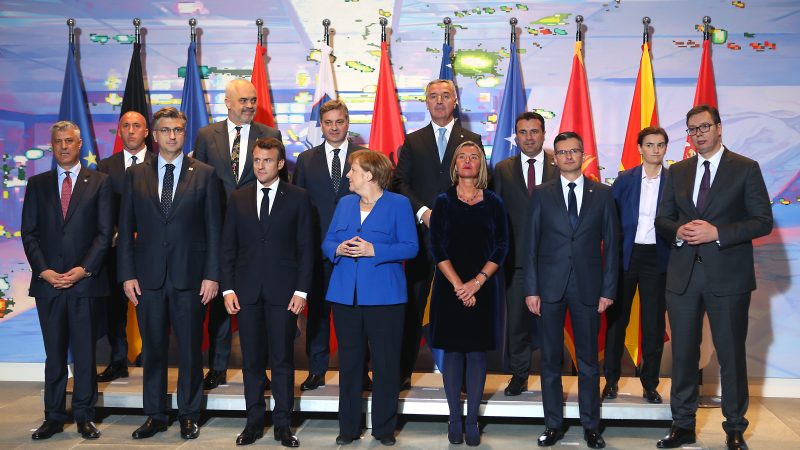 LEGACY OF "KRISENMANAGERIN": MERKEL AND THE BALKANS
LEGACY OF "KRISENMANAGERIN": MERKEL AND THE BALKANS
Teoman Ertuğrul TULUN 11.10.2021 -
 REMEMBERING AND REMINDING THE SIGNIFICANCE, MEANING, AND PROVISIONS OF THE LAUSANNE PEACE TREATY IN ITS CENTENARY
REMEMBERING AND REMINDING THE SIGNIFICANCE, MEANING, AND PROVISIONS OF THE LAUSANNE PEACE TREATY IN ITS CENTENARY
Teoman Ertuğrul TULUN 11.05.2023 -
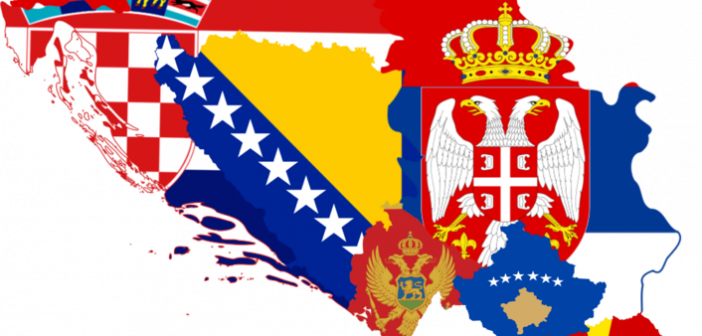 THE SPECTER OF RENEWED ARMED CONFLICTS IN THE BALKANS
THE SPECTER OF RENEWED ARMED CONFLICTS IN THE BALKANS
Teoman Ertuğrul TULUN 14.02.2017 -
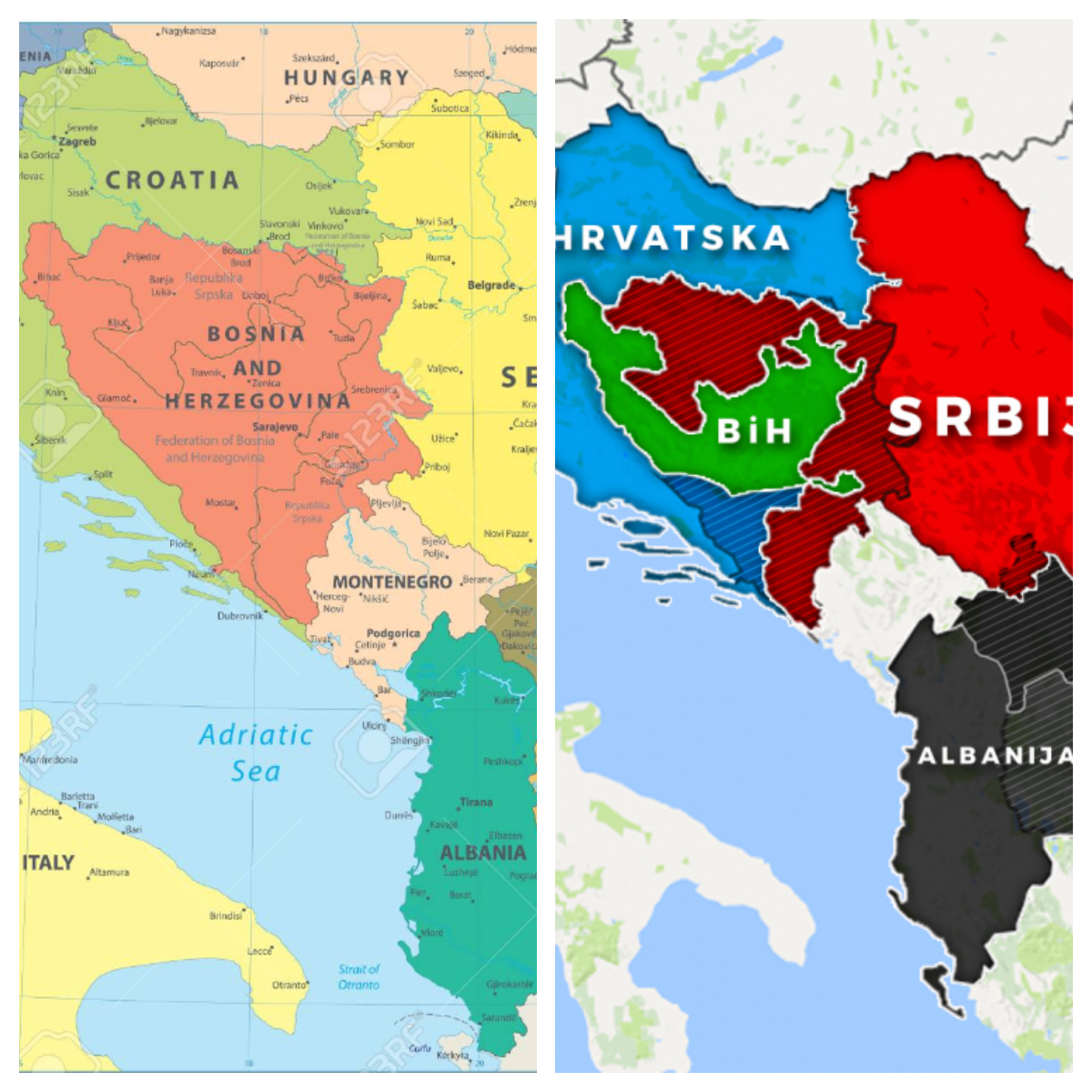 SLOVENIAN DOCUMENT ON DISMEMBERMENT OF BOSNIA-HERZEGOVINA CONFIRMS THE NECESSITY OF CONTINUING THE PIC-OHR-BONN POWERS
SLOVENIAN DOCUMENT ON DISMEMBERMENT OF BOSNIA-HERZEGOVINA CONFIRMS THE NECESSITY OF CONTINUING THE PIC-OHR-BONN POWERS
Teoman Ertuğrul TULUN 30.04.2021
-
 A MISNOMER: WESTERN BALKANS
A MISNOMER: WESTERN BALKANS
Teoman Ertuğrul TULUN 10.07.2017 -
 COVID-19 AND CORONA BONDS HAVE UNMASKED THE FRAGILITY OF THE EU
COVID-19 AND CORONA BONDS HAVE UNMASKED THE FRAGILITY OF THE EU
Teoman Ertuğrul TULUN 22.04.2020 -
 WHAT IS OPERATION NEMESIS?
WHAT IS OPERATION NEMESIS?
Hazel ÇAĞAN ELBİR 25.05.2023 -
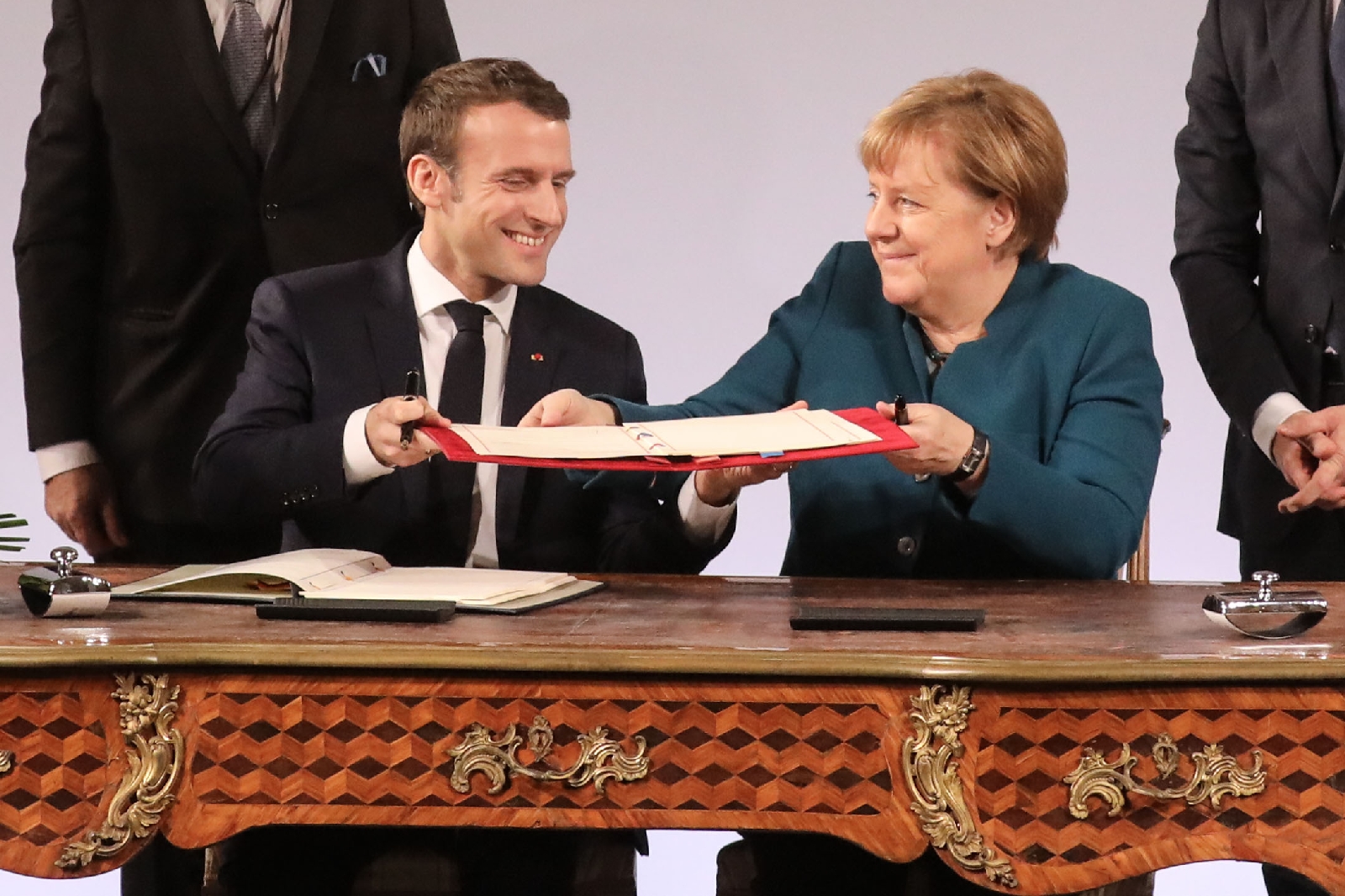 GERMAN-FRENCH JOINT CULTURAL INSTITUTES: TRANSFORMATION OF THE “CIVILIZING” MISSION OF WEST EUROPEAN COLONIALISM
GERMAN-FRENCH JOINT CULTURAL INSTITUTES: TRANSFORMATION OF THE “CIVILIZING” MISSION OF WEST EUROPEAN COLONIALISM
Teoman Ertuğrul TULUN 26.02.2019 -
 AN ARCHBISHOP OF THE ARMENIAN APOSTOLIC CHURCH HAND IN HAND WITH A MURDERER - BEHIND THE SCENES OF THE PROTESTS IN YEREVAN
AN ARCHBISHOP OF THE ARMENIAN APOSTOLIC CHURCH HAND IN HAND WITH A MURDERER - BEHIND THE SCENES OF THE PROTESTS IN YEREVAN
Hazel ÇAĞAN ELBİR 23.05.2024
-
25.01.2016
THE ARMENIAN QUESTION - BASIC KNOWLEDGE AND DOCUMENTATION -
12.06.2024
THE TRUTH WILL OUT -
27.03.2023
RADİKAL ERMENİ UNSURLARCA GERÇEKLEŞTİRİLEN MEZALİMLER VE VANDALİZM -
17.03.2023
PATRIOTISM PERVERTED -
23.02.2023
MEN ARE LIKE THAT -
03.02.2023
BAKÜ-TİFLİS-CEYHAN BORU HATTININ YAŞANAN TARİHİ -
16.12.2022
INTERNATIONAL SCHOLARS ON THE EVENTS OF 1915 -
07.12.2022
FAKE PHOTOS AND THE ARMENIAN PROPAGANDA -
07.12.2022
ERMENİ PROPAGANDASI VE SAHTE RESİMLER -
01.01.2022
A Letter From Japan - Strategically Mum: The Silence of the Armenians -
01.01.2022
Japonya'dan Bir Mektup - Stratejik Suskunluk: Ermenilerin Sessizliği -
03.06.2020
Anastas Mikoyan: Confessions of an Armenian Bolshevik -
08.04.2020
Sovyet Sonrası Ukrayna’da Devlet, Toplum ve Siyaset - Değişen Dinamikler, Dönüşen Kimlikler -
12.06.2018
Ermeni Sorunuyla İlgili İngiliz Belgeleri (1912-1923) - British Documents on Armenian Question (1912-1923) -
02.12.2016
Turkish-Russian Academics: A Historical Study on the Caucasus -
01.07.2016
Gürcistan'daki Müslüman Topluluklar: Azınlık Hakları, Kimlik, Siyaset -
10.03.2016
Armenian Diaspora: Diaspora, State and the Imagination of the Republic of Armenia -
24.01.2016
ERMENİ SORUNU - TEMEL BİLGİ VE BELGELER (2. BASKI)
-
AVİM Conference Hall 24.01.2023
CONFERENCE TITLED “HUNGARY’S PERSPECTIVES ON THE TURKIC WORLD"









